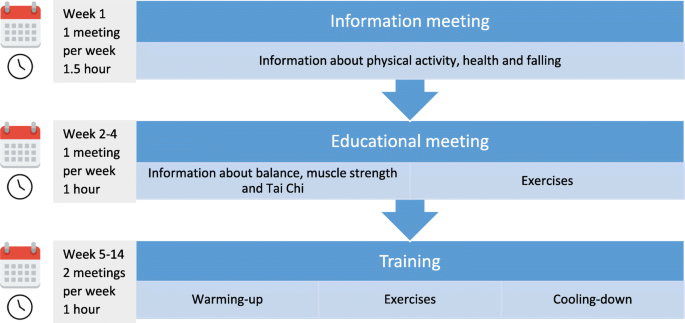Our Dementia Fall Risk PDFs
Our Dementia Fall Risk PDFs
Blog Article
Dementia Fall Risk Things To Know Before You Buy
Table of ContentsNot known Factual Statements About Dementia Fall Risk The Definitive Guide for Dementia Fall RiskSome Known Incorrect Statements About Dementia Fall Risk Things about Dementia Fall RiskRumored Buzz on Dementia Fall Risk
Make sure that there is an assigned location in your medical charting system where staff can document/reference ratings and document relevant notes related to fall avoidance. The Johns Hopkins Fall Risk Assessment Tool is one of several tools your team can utilize to aid avoid negative medical occasions.Client falls in hospitals are common and debilitating adverse events that continue despite years of effort to decrease them. Improving interaction across the evaluating nurse, care team, patient, and person's most included close friends and family may enhance autumn prevention efforts. A group at Brigham and Women's Hospital in Boston, Massachusetts, looked for to establish a standardized autumn avoidance program that focused around enhanced communication and patient and family members engagement.

The advancement team emphasized that successful implementation relies on person and team buy-in, combination of the program right into existing workflows, and fidelity to program processes. The team kept in mind that they are grappling with how to make sure continuity in program implementation throughout durations of dilemma. Throughout the COVID-19 pandemic, for instance, an increase in inpatient falls was linked with constraints in person involvement in addition to limitations on visitation.
Dementia Fall Risk - Questions
These incidents are normally taken into consideration avoidable. To execute the treatment, companies need the following: Access to Autumn ideas resources Autumn pointers training and re-training for nursing and non-nursing team, including new registered nurses Nursing process that enable for client and family members engagement to carry out the falls evaluation, ensure usage of the avoidance strategy, and conduct patient-level audits.
The results can be highly damaging, frequently increasing individual decline and triggering longer medical facility remains. One study estimated remains increased an added 12 in-patient days after a person fall. The Fall TIPS Program is based on appealing individuals and their family/loved ones throughout 3 major processes: analysis, individualized preventative treatments, and auditing to make certain that patients are taken part in the three-step loss avoidance process.
The patient analysis is based upon the Morse Loss Scale, which is a validated loss danger evaluation device for in-patient hospital settings. The scale includes the 6 most usual factors people in hospitals drop: the patient autumn history, high-risk conditions (consisting of polypharmacy), use of IVs and other outside tools, mental standing, gait, and flexibility.
Each danger factor links with one or even more workable evidence-based interventions. The nurse produces a plan that includes the interventions and shows up to the treatment group, individual, and family on a laminated poster or published aesthetic help. Registered nurses establish the strategy while meeting the person and the patient's family.
Not known Incorrect Statements About Dementia Fall Risk
The poster functions as a communication device Click Here with various other participants of the individual's care group. Dementia Fall Risk. The audit element of the program includes evaluating the individual's knowledge of their threat aspects and prevention plan at the system and medical facility degrees. Registered nurse champions conduct at least 5 private interviews a month with individuals and their households to examine for understanding of the autumn prevention strategy

A projected 30% of these drops outcome in injuries, which can range in severity. Unlike various other unfavorable occasions that need a standard scientific reaction, loss prevention depends very on the requirements of the patient.
The Only Guide to Dementia Fall Risk

Based on auditing outcomes, one site had 86% conformity and 2 sites had more than 95% conformity. A cost-benefit analysis of the Fall pointers program in 8 healthcare facilities estimated that the program price $0.88 per patient to apply and resulted in financial savings of $8,500 per 1000 patient-days in direct prices associated to the prevention of 567 drops over three years and 8 months.
According to the innovation group, organizations thinking about applying the program must conduct a preparedness assessment and falls avoidance spaces evaluation. 8 Additionally, companies ought to make certain the required framework and workflows for execution and develop an application plan. If one exists, the organization's Loss Prevention Task Pressure should be associated with planning.
About Dementia Fall Risk
To start, companies need to guarantee completion of training modules by registered nurses and nursing aides - Dementia Fall Risk. Medical facility team need to assess, based on the requirements of a health center, whether to use an electronic health and wellness record hard copy or paper variation of the autumn avoidance plan. Executing teams must hire and educate registered nurse champs and develop procedures for bookkeeping and coverage on fall data
Staff need to be associated with the process of redesigning the workflow to engage patients and family in the assessment and prevention plan process. Systems should remain in area to make sure that devices can comprehend why a fall took place and remediate the reason. A lot more particularly, nurses ought to have channels to give recurring comments to both team and device management so they can readjust and enhance autumn prevention workflows and connect systemic troubles.
Report this page